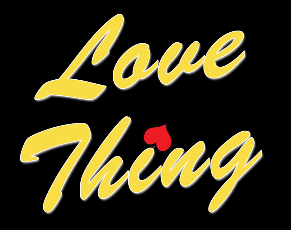Channels change on an old television set. Are we watching a soap opera, romantic comedy or Hollywood movie musical?
Yes—it's reality TV from the past.
Your average housewife, Chi-Chi, is suffering from a sexless marriage while husband, Bill, is more annoyed by a lack of communication. The couple's middle class suburban life begins to unravel through strange fantasies and flashbacks. Their gay son, Junior, suggests she call a self-help guru, Mr. Loveboy, who guarantees to transform her into an 'ultimate woman, fabulous housewife.' After-work at a bar, Bill has a strange daydream that awakens the 'man' in him and returns home for a big surprise. But is this family living in the real world, or are they on TV, performing for an audience—or perhaps even for themselves?
Love Thing captures the emerging multicultural spirit and personal freedom of the late 1970s with an outrageous attitude and experimental style. A work in progress now finally completed, it's the last American musical comedy from that era, which can now be viewed as a prophetic satire. Through its provocative, entertaining storyline—highlighted by song and dance—the movie answers the burning question of our time:
"What happens after the marriage?"
Production took place during the years when lengthy underground films were evolving into independent features, and Love Thing borrows from their different techniques and expectations. This is exemplified by its star, Joaquin La Habana, an accomplished theatrical performer, and his gender-reversal role in scenes with the influential avant-garde filmmaker and performance artist, Jack Smith.
The movie follows the emotional lives of an American family trapped inside the confines of a TV show. This provides a setup for the characters to reveal their true selves beneath the corny dialogue and phony laugh track. However, at certain intervals, the narrative transcends these pretensions by "changing channels," adding another perspective to the story that might evolve into an elaborate performance spectacle or surreal educational program. This shift in focus leads to a deeper spiritual awareness of events, bordering on the supernatural and tapping into the collective unconscious.
Love Thing moves to the beat of a new soundtrack by composer Joel Diamond, blending diverse styles from Classical, Jazz, Latin, and Disco. It explores the creative boundaries of traditional musical comedy in a prescient music video style, mixing elements of dance, cabaret, burlesque, and TV commercials with dreams and reality.
The restoration of this work has been done in the spirit of preservation and as a living tribute to cast members no longer with us. The late 1970s saw the emergence of many social issues concerning race, gender, and sexuality—issues still transforming our culturally diverse world. Love Thing reflected this fascinating moment in time, and now may be the time to take a second look.
______________________________
#SpoilerAlert – Che-Che Archibald, a transgender person of color who portrays the film character, Birdie, was the true life inspiration for Love Thing.
______________________________
Film Festivals and Showings:
1980
Greater Miami International Film Festival
First Gay American Arts Festival
1981
Hamburg Kinotage
New York Gay Film Festival
1982
Rizzoli's Screening Room Series
1984
EZTV West Hollywood Video Theater
2015
XXX Black International Cinema Berlin
2016
TransFormations - Trans Film Festival Berlin
_______________________________
Review excerpts from the past:
"Everyone's worst fears (or fondest hopes) about drag-queen comedy are realized in this nightmarish feature."
-Los Angeles Reader
"Mike Mannetta's third world drag musical, 'Love Thing' is wonderful with the spectacular transvestite, Joaquin La Habana." - Stuart Bryon, Village Voice
"There can be no film anywhere quite like Love Thing."
-Nathan Fain, The Advocate
